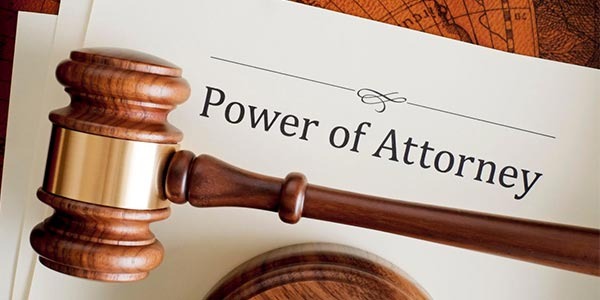What is a power of attorney?
Introduction
Power of Attorney (Power of Attorney) is a legal document wherein you authorize another person (known as agent or attorney or attorney in fact) and give that person all the legal rights to act on your behalf. The sanctioned person can make decision, enter into a contract, and make sale /purchase of property, etc. Issuing a Power of attorney is a vital legal document by a person to a third party. It gives one the right to act, appear and subscribe on all applicable documents on behalf of him/her, if:
- He/she is unable to do any particular act, or
- Appear before the Court/any other authority, or
- To execute any particular document
The person who is issuing the Power of Attorney is referred to as ‘the Principal’, whereas to whom the Principal is issuing it, is the ‘Attorney’.
Essentials for Power of Attorney
A Power of Attorney should include details like Name, Address of Principal and Agent along with date and place where the Power of Attorney is being executed. Apart from that, it should
- describe the type of powers that are being delegated and whether the Power of Attorney is general, specific, durable or irrevocable
- state the list of powers that are being conferred on agents like, custody, management of property, healthcare, etc
- include the liabilities of principal, agent or third party if any.
- have signatures of respective parties along with notary.
Types of Power of Attorney:
There are two types of Power of Attorney on the basis of the registration
- Registered Power of Attorney:When a power of attorney has signatures before the registering authority i.e. the Additional District Sub-Registrar or the District Sub-registrar. The office of the Registrar records it as a registered power of attorney. At the time of the revocation of a registered power of attorney, one needs to draft a Deed of revocation of power of attorney. This has to be registered in the Registry office.
- Unregistered Power of Attorney:It’s the power of attorney which is not registered before the Registry Office and only signed by the parties or notarized by a Notary public.
Purpose of Power of Attorney
There are different purposes for each type of Power of Attorney, such as
- General Power of Attorney– A General Power of Attorney is a Legal notice that gives someone the power to make decisions on your behalf when you are not able to do so for yourself. This type of power of attorney can be used in a variety of situations, such as if you are unable to travel if you are a minor, or if you are incapacitated
- Special Power of Attorney – This Power of Attorney is executed for specific performance. A special power of attorney is an instrument that allows one person to act on behalf of another in a legal or financial matter. The person who grants the power of attorney must be trustworthy and have the authority to make decisions on behalf of the person who is granting the power.
How to register a Power of Attorney
STEP 1: Draft a Power of Attorney on a stamp paper of value depending upon your state with all the terms and conditions
STEP 2: Make sure you and the attorney sign the deed and notary is must.
STEP 3: Visit your local registrar or sub-registrar office for submission with two witnesses along with all the supporting documents like Aadhar Card, Photographs, Residence Proof, etc. in original and photocopies.
STEP 4: After submission, the registrar will deposit your documents and shall provide you with one copy of the same.
When can you revoke a Power of Attorney?
The principal can revoke a Power of Attorney if,
- The attorney does anything contrary to the terms and clauses of the Power of Attorney then the principal can revoke the power of attorney after giving prior legal notice for cancellation of power of attorney
- The due completion of work or business for which there is a power of attorney
When can you not revoke the power of attorney?
- When the attorney has some rights and interests over the subject matter. For that, the power of attorney, the principal cannot revoke the power of attorney. In this case, the consent of the attorney is obligatory for cancellation
- In case, the attorney partly exercises his duty in accordance with the clauses of the power of attorney.



